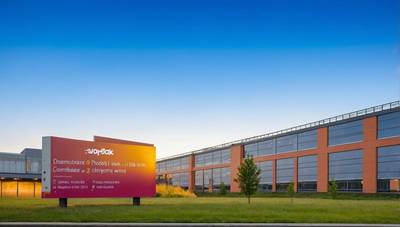Vopak's profits are unlikely to change much by 2025 as one-offs have a negative impact on the 4th quarter results
Dutch tank storage company Vopak said that it expects to see little difference in its earnings by 2025, despite the fact that strong demand for energy-storage infrastructure is boosting its results.
Vopak released a statement that said, "Gas Terminals Performance showed Firm Throughput Levels, Backed by Growing Energy Demand and Energy Security Considerations Around the Globe."
Analysts cited a missed quarterly core profit and a cautious outlook as the reason for the 7% drop in shares of this company that operates terminals and stores fuels and chemicals around world.
Vopak reported a negative impact in the fourth quarter of 2024 due to technical problems at one of their LNG terminals located in the Netherlands and a loss in Mexico as a result of local legislation that significantly reduced imports of crude and related products.
In a client note, ING analysts stated that "the impact of these items is expected to continue into FY25" and had led them to a cautious outlook.
Michiel Gilsing, Vopak's finance director, said that fuel distribution in Mexico is difficult at the moment due to the lack of permits and empty capacity.
Gilsing stated that "We had invested 58 million Euros six years earlier, so it was a substantial write-off."
He added that a policy change under the current administration was unlikely. This means that Mexico's market will continue to be negatively affected by clean petroleum product imports.
Vopak's EBITDA (earnings before interest, tax, depreciation, and amortization) is expected to be between 1,15 billion and 1,20 billion euros by 2025.
The metric increased by 9% in 2024 to reach 1.17 billion euro ($1.22 billion), but dropped 2% in the fourth quarter to 277 millions.
Vopak announced that it would buy back up to 100 millions euros of shares on Thursday, and offer a dividend of 1,60 euros per share. This is due to the company's strong cash flow. ($1 = 0,9578 euros) Reporting by Alban Kach and Anna Peverieri, Gdansk. Editing by Milla Nissi
(source: Reuters)





